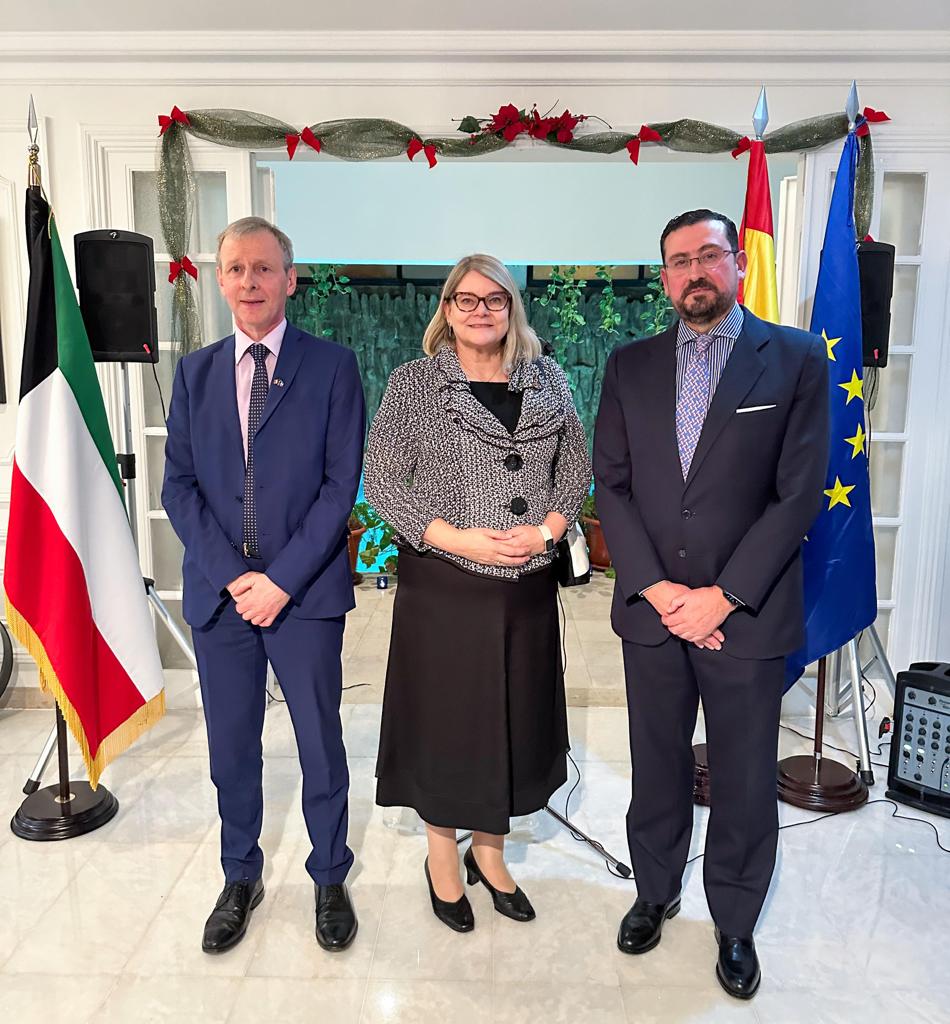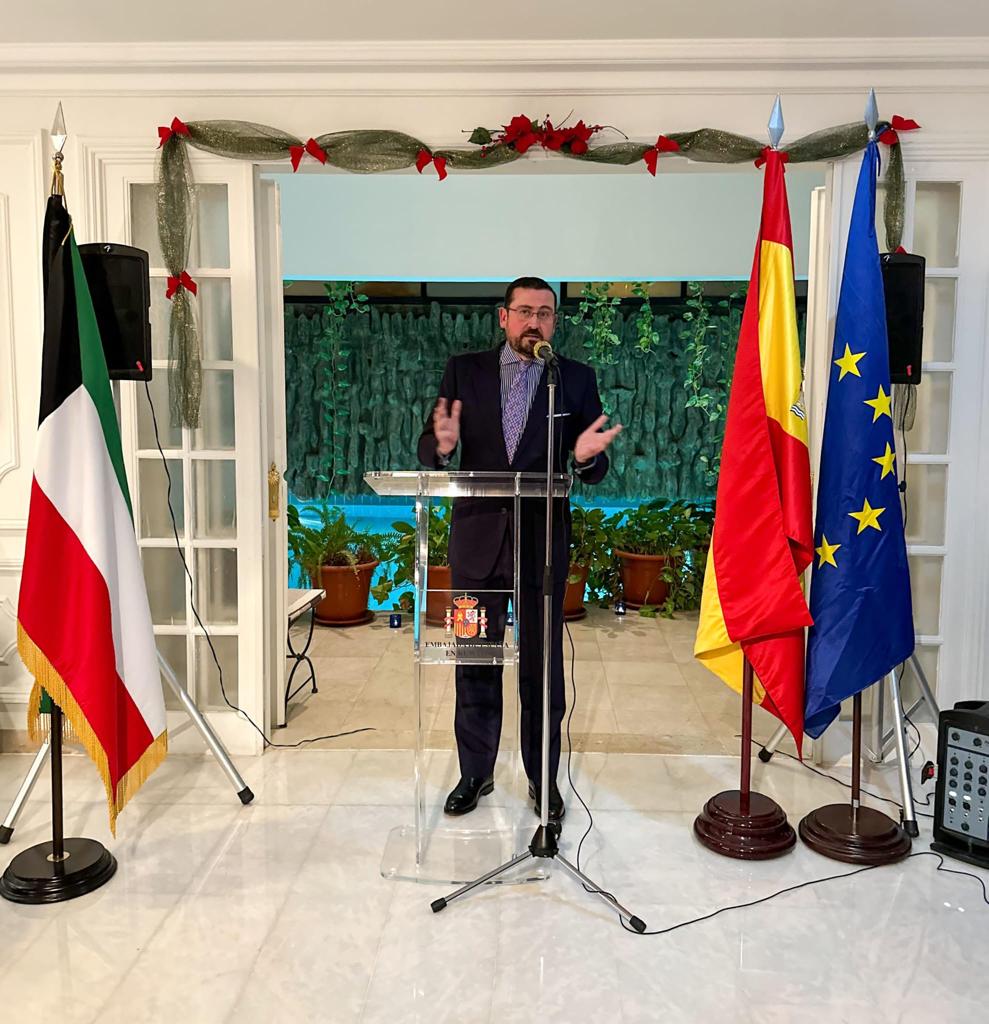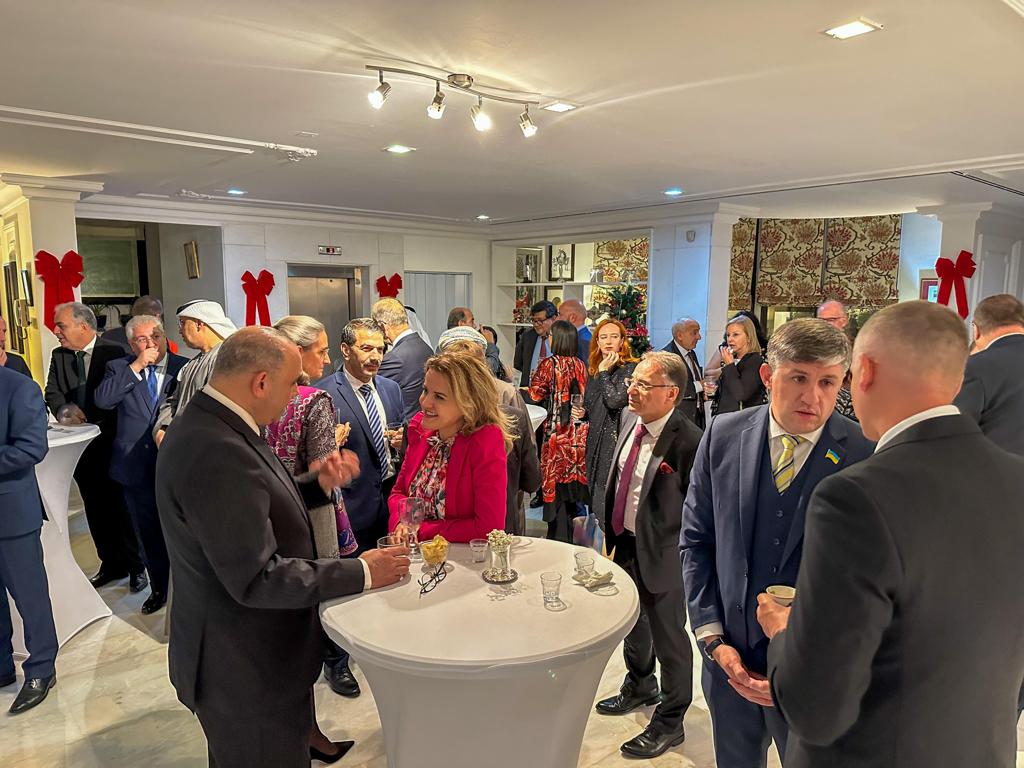14/12/2023
14/12/2023

KUWAIT CITY, Dec 14: The Embassy of the Kingdom of Spain in Kuwait held a reception at the residence of the Spanish Ambassador, H.E. Miguel Moro Aguilar, to mark the end of the six-month Spanish Presidency of the Council of the European Union, which lasted from July 1 until December 31, 2023.
This landmark event was also attended by HE Anne Koistinen, Ambassador of the European Union to the State of Kuwait, and HE Christian Dooms, Ambassador of the Kingdom of Belgium to Kuwait. Belgium will be taking over the Presidency of the Council of the European Union on January 1, 2024, for another period of six months.


Speaking at the event, Ambassador of Spain HE Miguel Moro Aguilar, began his address by mentioning the complex, turbulent international context of the Spanish Presidency, plagued with geopolitical tensions, with the wars and terrible suffering caused in Gaza or in Ukraine.
According to the Spanish envoy, one of the strategic goals of the Spanish Presidency in this volatile scenario was precisely to strengthen the European Union strategic autonomy, reflected in the "Granada Declaration" approved at the informal European Council of October in Granada, Spain and in the organization of the Third Summit of the European Political Community.
Particular attention was also paid to the strengthening of EU relations with Middle Eastern and North African countries as well as with the Gulf region, where the EU-GCC Ministerial meeting in Muscat early October offered a great occasion for an impulse in the relations between the two blocs.
Regarding Kuwait, Moro Aguilar said: “We are glad to see that the EU, under this semester, has experienced a significant improvement in the visa procedures for Kuwaitis, a reality that is already paving the way for a closer people-to-people relationship.
The EU and Kuwait also held a recent fruitful Human Rights dialogue and political consultations in Brussels, opening promising avenues for future collaboration in the different domains. “We are almost ready in a few weeks to pass the baton to our Belgian friends, with which we have already collaborated closely in the last few months to guarantee and smooth, effective transition. Our high appreciation goes as well to Ambassador Koistinen and her team at the EU Delegation, for their valuable efforts and the good team work in the last period.”
For her part, EU Ambassador HE Anne Koistinen thanked the Spanish Embassy for their role played locally during the last six months and praised cooperation with the Spanish Embassy, including the preparation of a very generous Schengen visa cascade for Kuwaiti nationals and holding a joint visit for EU Ambassadors to the Shagaya Renewable Energy Complex on October 25.
She further elaborated that during the upcoming Belgian Presidency the EU Delegation will continue playing an important role in organizing and hosting regular meetings of 16 EU Member States Ambassadors in Kuwait. This is an important platform for EU Member States to exchange views and coordinate their work in Kuwait.
In his address, Ambassador of Belgium HE Christian Dooms began thanked his Spanish colleague, HE Miguel Moro Aguilar for the hard work he and his team have carried out to advance on the European agenda in Kuwait.
He is confident that this will facilitate a smooth transition to the Belgian Presidency.
“The 3 key words of the agenda of the Belgian Presidency are -- “Protect, Strengthen and Prepare”. These priorities will be structured around 6 themes -- protection of the Rule of Law, democracy and unity; strengthening competitiveness; a just ecological transition; strengthening the social and health program of the EU; protection of individuals and borders; promoting Europe on the world stage”.
The Ambassador of Belgium concluded his remarks by mentioning some specific actions and initiatives that will be taken in the Middle East/Gulf Region, such as strengthening the EU’s partnership with the Gulf States and working towards stability in the Gulf Region.
The Presidency of the Council rotates among the EU member states every 6 months. During this six-month period, the EU Member State that holds the Presidency of the Council of the European Union determines the agenda and priorities of the Council as well as presides over its meetings, to broker compromises among the EU Member States.


